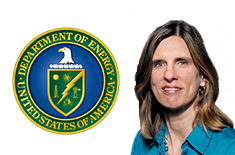Hall Gets Exascale Computing Award
November 11, 2016

University of Utah School of Computing professor Mary Hall was awarded a $871,000 grant from the U.S. Department of Energy for an exascale computing project designed to make it easier for programmers to write code for different kinds of high-speed exascale computing systems.
Her project is one of 25 software development proposals funded by the DOE it was announced Thursday, Nov. 10. In all, the first year of funding for these projects total $34 million. These proposals, which come from 25 research and academic institutions, cover many components of the software stack for exascale systems, including programming models and runtime libraries, mathematical libraries and frameworks, tools, lower-level system software, and data management.
Hall’s project involves an autotuning compiler framework called CHiLL. Programmers can write and maintain a single copy of their source code and automatically rewrite the code to produce a variety of high-performance, architecture-specific implementations of exascale computing.
Exascale refers to computing systems at least 50 times faster than the nation’s most powerful supercomputers in use today. Exascale architectures will rely on a diversity of computing processors and memory system technology to provide both high performance and energy efficiency. But to map applications to such hardware, computational scientists may need to rewrite an application for each target architecture. Consequently, it’s an arduous task to rewrite the code, and it can be difficult to maintain.
CHiLL’s autotuning employs empirical techniques and machine learning or heuristic search to evaluate a large collection of functionally equivalent implementations and selects the implementation that delivers the best performance.
The University of Utah is sharing the grant with the Lawrence Berkeley National Laboratory and Argonne National Laboratory. The grant totals $2.72 million over three years.